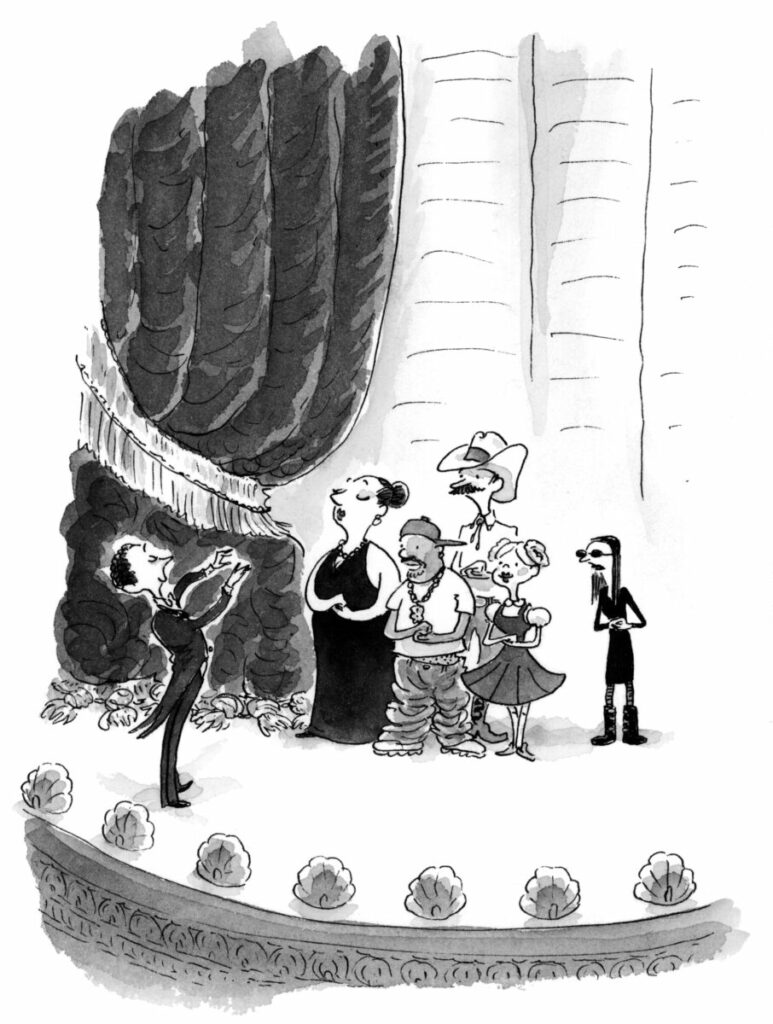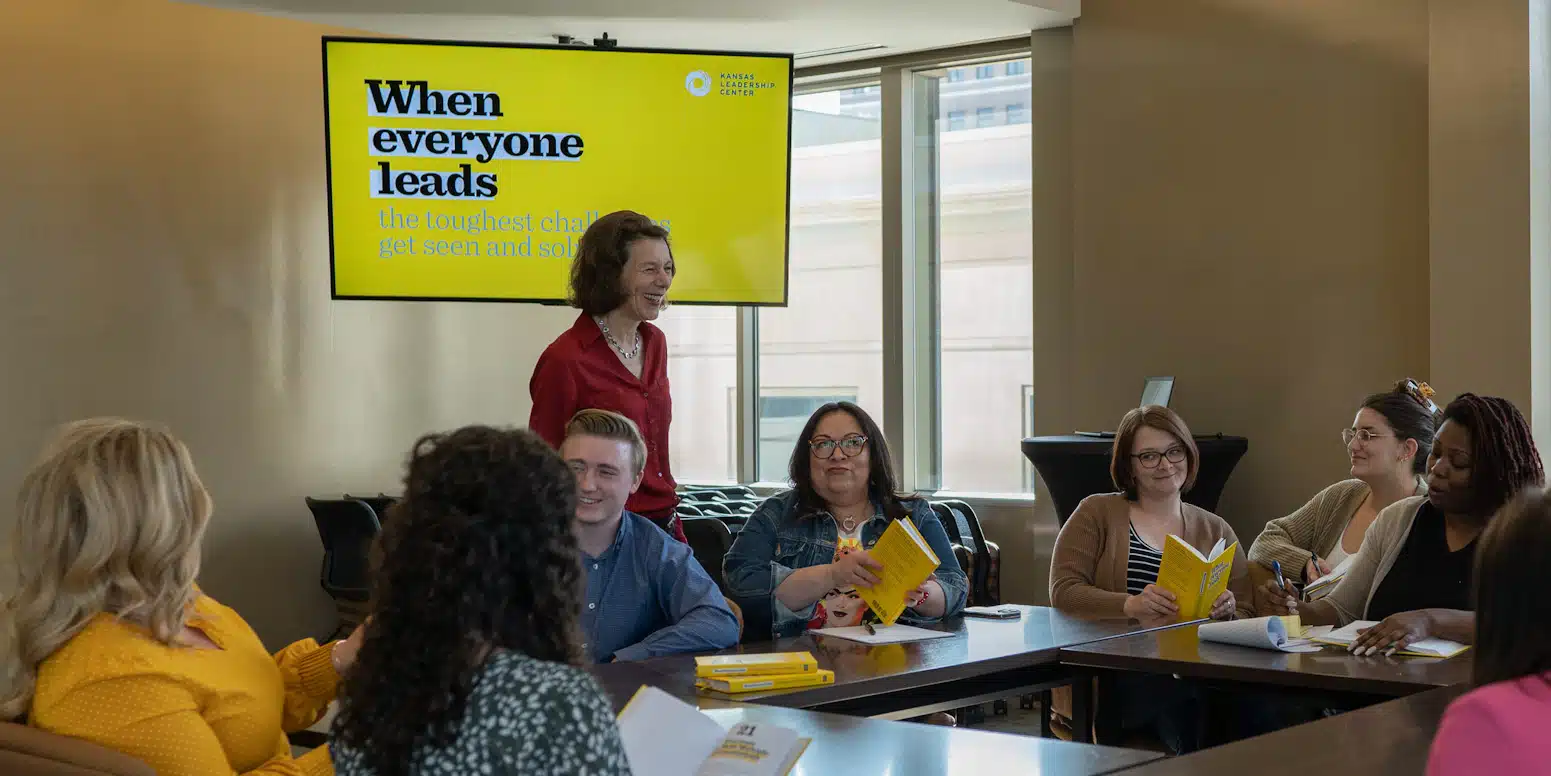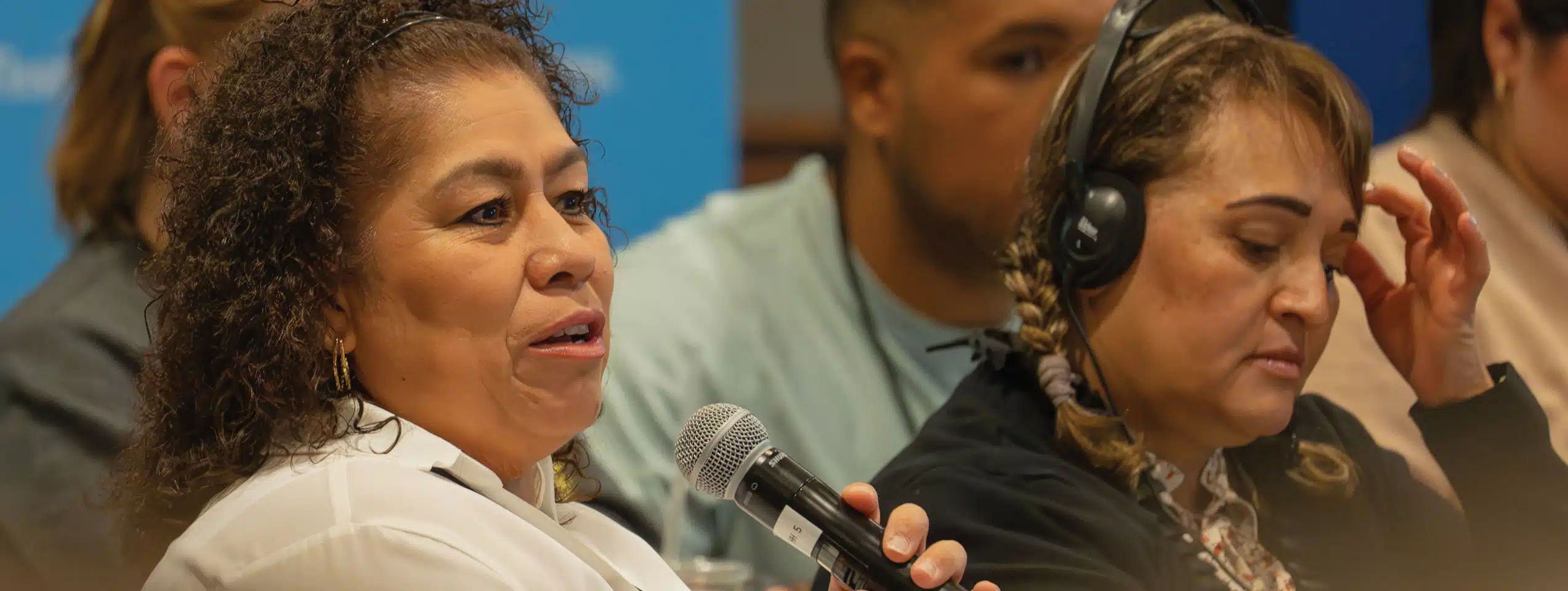Suppose you are facing a tough challenge. Maybe your team has already missed an important product delivery deadline and things are looking bleaker by the day. Frayed relationships internally and between your company and your customer make it all but impossible to imagine hitting the new deadline. You are normally optimistic and full of energy to solve any problem, but this situation has you stumped.
Or maybe you are on a high-level Food Safety Task Force charged with identifying and eliminating rural food deserts in your state. Other task force members seem inclined to sit around rehashing the same old plans that didn’t work last time. Your frustration is about to send you over the edge.

Time to Share the Leadership Load
Or if these two examples don’t motivate you to consider new ways to energize others, then bring to mind your own most important adaptive challenge. It feels like this:
- The challenge is important – to you, your team, the people you care about
- You’ve been working on it (or actively ignoring it) for longer than you care to admit
- The challenge defies easy answers
- You need to keep learning
- You need other people involved
- Your leadership alone won’t bridge The Gap between where you are now and where you want to be
- You need other people to share their interpretations about what is going on and what progress could look like
- You need people who don’t think the way you do or see the things you see
- Success or even significant progress toward a better future demands leadership from multiple angles
- You are racking your brain: Where will the next burst of energy and leadership come from?
Right? You’ve got an important challenge and you are stuck. Let’s step back and consider the value of attempting to engage new voices. Why does this behavior show up as a skill linked to the leadership competency Energize Others?
Get Beyond Your Go-to Crew
Here are some helpful definitions:
- Usual voices are your go-to crew, the people you’d typically engage with on a challenge like the one you are facing.
- New voices are those outside your go-to crew, people who have a stake in your tough challenge but whom you wouldn’t typically attempt to energize or draw energy from as you attempt to solve your daunting problem.
The members of the Food Safety Task Force in the example at the start of this article may be that governor’s “usual voices” for addressing problems related to food insecurity in her state. That group – while experienced and knowledgeable – is nonetheless unable to see the whole picture related to rural food insecurity. That gaping gap in perspective contributes to frustration and could completely stall progress on the challenge.
In the missed product deadline example above, an important “new voice” could be the customer the company has failed to deliver their product to on time. Maybe a similar faction is missing from the collective work on your challenge. Imagine how authentic engagement with the very people you are disappointing could raise the heat and get everyone into the productive zone of work.
The potential benefits to the Food Safety Task Force of engaging beyond the usual voices are perhaps more obvious. If leadership on their challenge comes only from those whose jobs compel them to show up for meetings about food insecurity at 9 a.m. on a weekday, how successful can they be? Imagine instead the excitement, energy and possibility that would come from engaging everyone affected by rural food deserts. What would it look like to energize and draw energy from representatives of all the people who eat, grow and aspire to deliver and sell food in rural corners of the state? What becomes possible when each of them starts leading where they have influence.
(To learn more and get inspired about what this could look like in your world, read Start Where You Have Influence, Chapter 14, in When Everyone Leads.)
Engaging new voices takes effort and courage
You may think you don’t need additional input, more people to collaborate with and keep track of, or more opinions to consider. Or maybe you worry, as you contemplate which new voices to engage to work on your challenge, that talking to people outside your go-to crew will confuse things. After all, your challenge is complex enough already. You don’t need more people experimenting all over the place!
Or maybe it has never occurred to you that people beyond your immediate circle have anything to gain or lose if you are successful.
Think again.
Sticking with the usual voices will be simpler and easier to organize. But the usual voices will get you the usual answers, the typical experiments, similar disappointing results. You won’t learn what you need to learn. A complex, adaptive challenge always requires more new ideas than your go-to crew can muster.
Beyond Your Go-to Crew: The Energy of Their Discontent
Sometimes the new voices you need to energize and draw energy from (if you are serious about making real progress on a tough challenge) are those in authority who have ability to influence budgets and policy. Other times our conscious or unconscious biases result in failure to include people who are regularly silenced because of their race, ethnicity, income, age, sexuality, gender, religion, or ability. Occasionally the new voices you need are people whose opinions you think you know but haven’t checked in with lately. Often, you’ll fail, at first, to realize how much and how significantly a group will be affected by the change you seek.
That’s why KLC encourages you to return again and again to diagnosis. Make a faction map and then, when progress isn’t happening fast enough, make a faction map again. Who is missing from your map? Who is throwing out roadblocks? Don’t complain about those newly acknowledged voices! It’s not enough to just map and understand them. Instead, commit to learning from and with them.
Energizing others means encouraging them to design their own leadership experiments. Allow yourself to get fired up by the energy of their discontent. Support their experiments every bit as much as you want them to lend their energy to yours.
When you engage new voices, you inject fresh, new eyes, and conflicting perspectives on the problem. You unleash the power of more and better interpretations. You create new possibilities for experimentation, and progress. You reveal a vision for the future that is better than you alone imagined.


